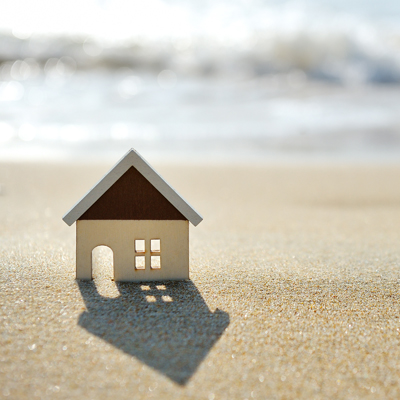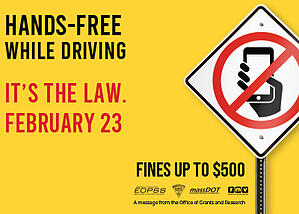
Buying a new house is exciting, whether you are a first-time buyer or an experienced homeowner. Going through open houses or viewing homes for sale with a real estate agent offers the chance to see what features you do and do not want in your new home. While finding your perfect new home and starting the buying process is thrilling, it can also be stressful. Worrying about price negotiations, home inspection and mortgage terms can dampen the excitement of buying a house.
Often overlooked in the long list of things to do before buying and moving into your new home is getting home insurance. Getting homeowners insurance before closing is an important step in the homebuying process and should be a priority.
When Do I Need to Get Homeowners Insurance?
In general, you purchase homeowners insurance before closing on the home. By securing the coverage you need before you even move into your new home, you safeguard your purchase from disaster. It is important to research various insurance policy options as they may offer different levels of coverage. Once you have found a policy that is best for you, check that it meets the requirements of your lender. Most financial institutions won’t fund a mortgage, or home equity lines of credit, without the home being insured. In fact, some lenders may require that you purchase extra coverage in addition to a basic homeowners policy.
After determining that your desired policy meets your lender’s requirements, you can purchase the insurance. This should be done sometime before you go to the meeting to officially close on your home. The insurance company will normally pre-approve the policy and then wait for your escrow/title company to send a request for Proof of Insurance when the final closing date is near. The insurance company will then email or fax the confirmation of coverage before the closing date.
Protecting Yourself and the Lender
Purchasing a homeowners insurance policy keeps your new home safe from disasters such as a burst pipe or fire. This safety net offers a clear advantage for the homeowner should an accident occur. Rather than paying out of pocket for expensive repairs, the insurance covers the cost of repairing any damage. Homeowners can relax knowing their home will be repaired and they can continue enjoying their investment.
Your lender enjoys similar protection from your home insurance. Having invested their money to help you buy your new home, your lender wants to know that their investment is safeguarded. Luckily, paying for your home insurance is usually made simple with an escrow account. This account is set up by your lender to hold funds for certain property expenses. Some of your monthly mortgage payment is put into your escrow account by your lender. They can then pay for your insurance costs and/or property taxes using the money in the account. Paying the premium on your behalf protects the lender by allowing them to verify that your home is covered. The escrow account also makes your life as a homeowner less stressful, as you pay one monthly payment to the lender rather than paying several different monthly, yearly or quarterly payments to various outlets.
Smart and Necessary
Purchasing an insurance policy is a smart move in protecting the incredible investment of a new house. In addition to covering repairs to your home, many policies offer some coverage for you and your family’s belongings. Basic homeowners policies usually include liability coverage to protect you against legal action if someone is hurt on your property. These lesser-known benefits of homeowners insurance increase the value of purchasing a policy.
Your lender’s required amount of coverage for your new home may not be clear. Each lender may differ in their insurance requirements, so it is important to understand exactly what coverage is needed. Additionally, there may be extra coverage options that are not required but are included in your homeowners insurance policy or offered optionally. If you have any questions about what is covered in your policy, speak with a trusted Wawanesa homeowners insurance agent by calling 1-877-WAWANESA (929-2637). Your agent can help you determine if you have enough coverage to meet the lender’s requirements.
Your HOA and Homeowners Insurance
If your new home is in a subdivision or planned community, you are likely required to pay a homeowners association fee. Also known as HOA fees, this money helps cover the upkeep and maintenance costs of the community where your home is located. Often included in HOA fees are your home’s portion of an insurance policy for the community and/or complex.
As a community member, this HOA policy is partly your responsibility, but it does not cover the structure of your home or the belongings inside of it. To protect your new house from disaster, the HOA insurance is insufficient. It is important to protect your home with a personal homeowners insurance policy. A personal policy covers the physical structure of your home. Coverage may also be available for your family’s belongings inside the home and outbuildings such as garden sheds.
Your HOA and Condominium Insurance
The insurance policy purchased by the Condominium Association offers coverage for the common areas and, in most cases, the basic structure of a condominium or townhouse complex. Swimming pools, tennis courts and playgrounds for neighborhood families to enjoy are usually covered in this policy. As a part-owner of these amenities, it is partly your responsibility to pay for accidents or liabilities that may occur in community areas.
Should a child sustain an injury on the community playground and the parents decide to sue the Association, you may be liable for a portion of the costs. Any loss costs in excess of the Association’s coverage limits are passed on to you as a part-owner of the community. You may be able to add extra coverage to your personal insurance policy to help protect you in the event the Association’s insurance is insufficient to cover the community expenses related to a covered loss.
Flood Coverage
There are some limitations to basic homeowners insurance policies. Depending on your home’s geographical area, you may need to purchase additional coverage for disasters such as floods.
Most homeowners insurance policies cover flooding from a burst pipe or other water leak in your home, but they usually do not cover flooding as a result of natural disaster. Homes that are built on a floodplain, or are in commonly-flooded areas, often benefit from flood insurance. Your lender may even require additional coverage for flooding if you live in a floodplain. Adding flood insurance to your basic insurance helps cover repairs to your home if it suffers damage from flooding.
Homeowners insurance policies offer both you and your mortgage lender protection in the investment of your new house. Shopping for a new home is an exciting and stressful time and purchasing insurance may become an afterthought. Take the time to understand how to get homeowners insurance when buying a house by researching what coverage your new home needs.
For more information on home insurance policies, contact Lallis & Higgins Insurance.
wawanesa.com





